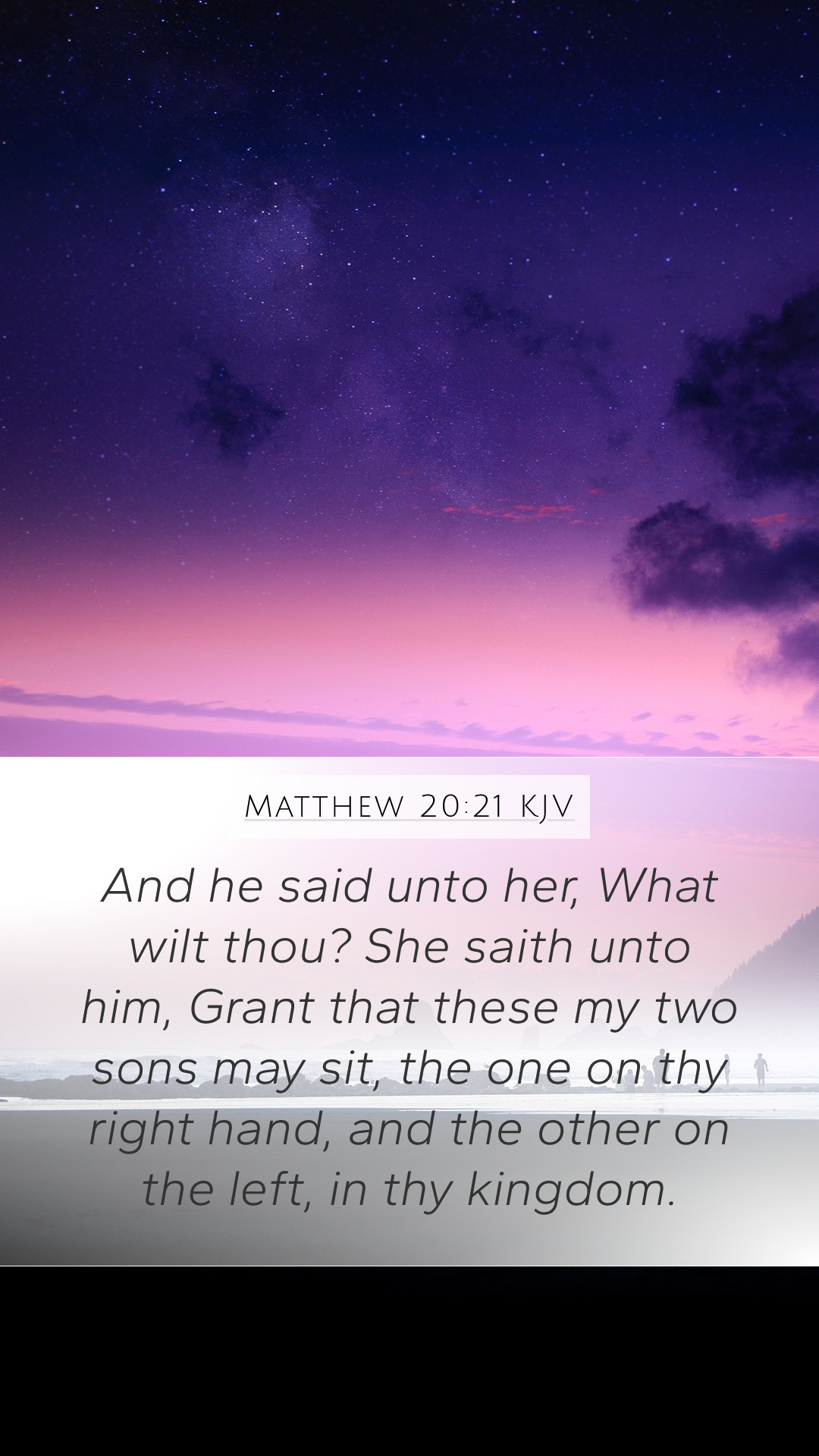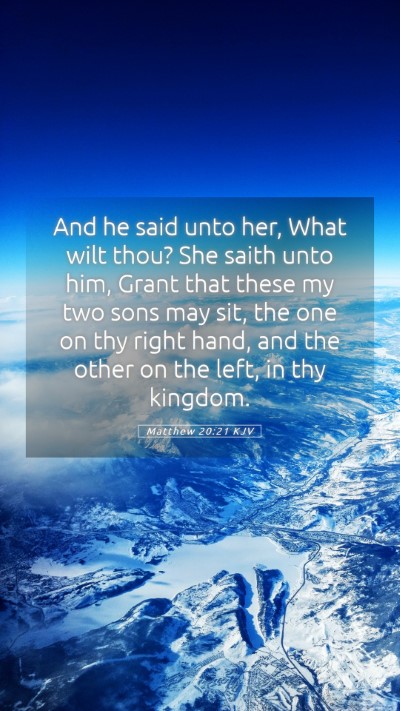Understanding Matthew 20:21
In the Gospel of Matthew, chapter 20, verse 21, we find a powerful request made by the mother of James and John, the sons of Zebedee, who approached Jesus with a bold request for her sons' future positions in His kingdom. This moment unveils deep insights into ambition, discipleship, and the nature of Jesus' kingdom. Below, we explore the various interpretations and meanings of this verse, informed by public domain commentaries.
Bible Verse Context
Matthew 20:21 states, "And he said to her, 'What do you want?' She said to Him, 'Grant that these two sons of mine may sit, one on Your right hand and the other on the left, in Your kingdom.' This plea highlights both the aspirations of the disciples and the misunderstandings of Jesus' mission and kingdom.
Commentary Insights
-
Matthew Henry:
Henry notes that this request reflects a mother’s care for her sons and their desire for honor. He emphasizes the common human tendency to seek power and recognition and warns against the misunderstanding of true greatness in God’s kingdom, which is defined by servitude, not status.
-
Albert Barnes:
Barnes reflects on the ambition exhibited in the request. He argues that while it is natural to desire position, Jesus teaches that the greatest in His kingdom will be those who serve. This encapsulates the message that the kingdom of heaven operates under a different paradigm than worldly kingdoms.
-
Adam Clarke:
Clarke provides a thorough historical context, explaining that the desire for preeminence was common among the Jewish people at the time. He points out that this request from the mother of James and John reveals a misunderstanding of the nature of Jesus' reign, which is not about earthly power but spiritual authority.
Biblical Exegesis
The request made by the mother, asking for her sons to sit at Jesus’ right and left, symbolizes a wish for proximity to power—a desire to share in Christ's authority. This moment serves as a teaching opportunity for Jesus, as He redirects their focus from seeking personal elevation to understanding the essence of His mission.
Key Themes
-
Ambition:
The ambition displayed in this verse raises questions about the nature of our desires in relation to God's kingdom. Are we pursuing our own glory, or are we seeking to serve?
-
Servitude:
Jesus’ response ultimately points to the call of every disciple to embrace humility and become a servant to all, contradicting worldly values of ambition and competition.
-
Kingdom of Heaven:
This verse brings to light the distinctions between human understanding of leadership and the divine principles governing Jesus' kingdom, where the last shall be first and the first shall be last (Matthew 20:16).
Application for Today
As we reflect on Matthew 20:21, it invites us to examine our own aspirations and motivations. In a world that often values status and recognition, we are called to aspire to serve others rather than seek our own advancement. This principle is critical for anyone engaged in Bible study groups, online Bible study, or any form of Bible study resources.
Related Bible Cross References
- Matthew 20:16 - "So the last will be first, and the first last."
- Mark 10:42-45 - Jesus’ teaching on servanthood.
- Philippians 2:3-7 - The call to humility and servanthood.
Conclusion
Matthew 20:21 serves as a powerful reminder of the true nature of greatness within God’s kingdom. Through the combined insights from various biblical commentaries, we gain a richer understanding of how this verse challenges believers to pursue humility over ambition, ensuring our roles are aligned with the principles of Jesus’ teachings. For those seeking to deepen their Bible verse meanings, this passage provides a clear avenue for reflection and growth in our walk of faith.


